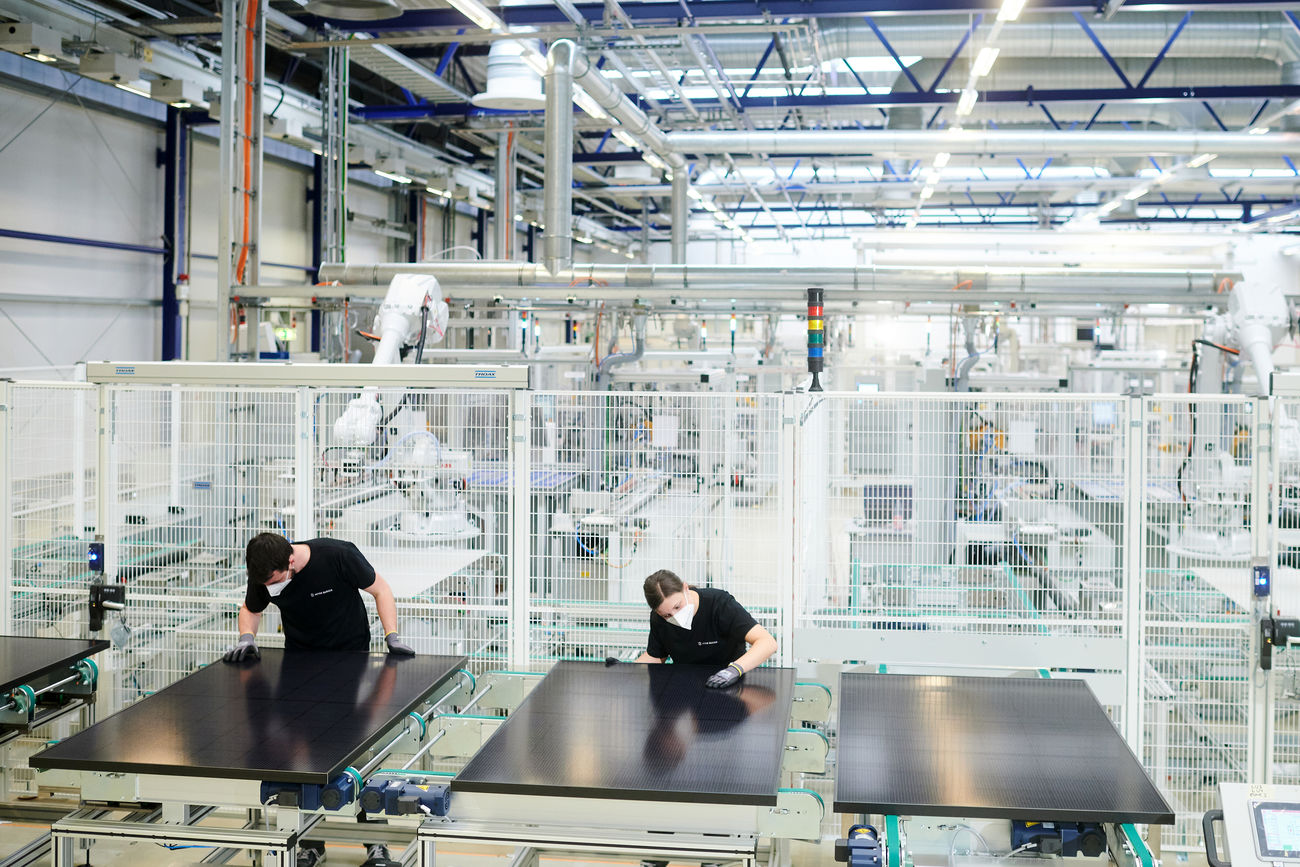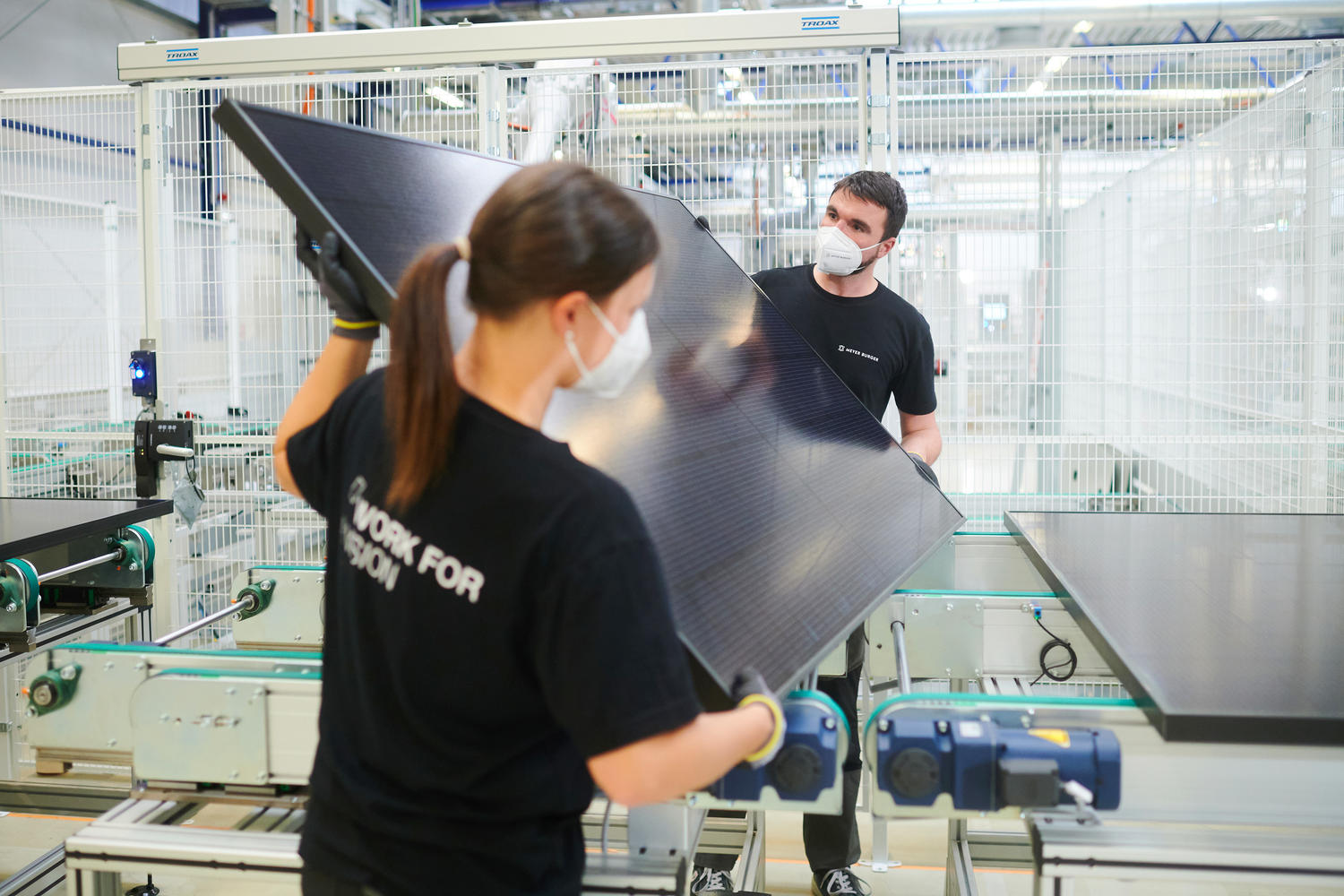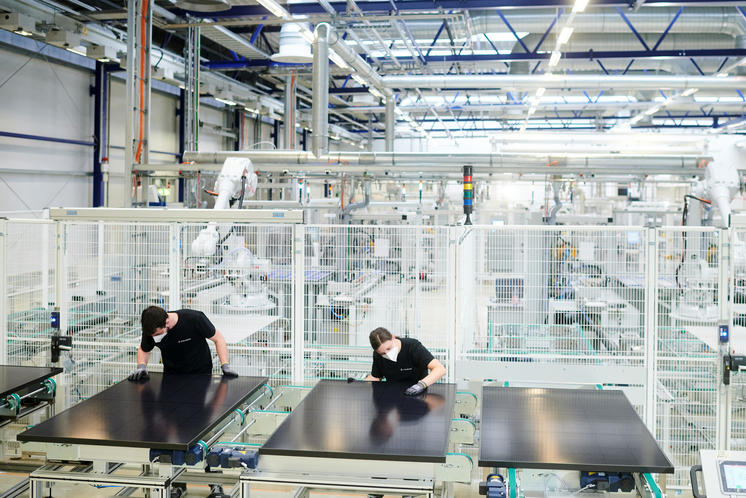Back to future for the German solar module



Meyer Burger started a traditional machinery company with a focus on watchmaking machines in the 50s and made its entry into photovoltaics in the early 80s. The machinery producer has been at the forefront of every technological trend in the solar industry. Yet despite being a leader in solar machinery, large losses were recorded for many years. This is counterintuitive, as demand in this sector was only strengthening, but the company was faced with a forced exit from the machinery industry or to go under.
Many years ago, the European solar industry was strong. However, big name European solar module companies such as Solarworld and others had gone bankrupt. This led to the disappearance of the European solar module industry.
Meanwhile, like other Chinese companies, the Chinese solar module industry operates on very thin margins. The focus is on the production of a cheap, not a differentiated product. This explains why the industry had, under these circumstances, no demand for expensive equipment from Meyer Burger (MBTN), creating an impossible environment to thrive as a supplier of machinery. Thus, Meyer Burger was forced to reinvent itself as a solar cell and module producer in Germany; one of many attempts to re-establish solar module production in Europe.
Similar to its strong market position in electric cars, Chinese politics has focused on the solar industry as a strategic play. With Chinese business culture being less eps-driven and more revenue-oriented, the focus on short-term shareholder value is less pronounced. This allowed for massive expansions by Chinese producers and production growth rates soared. Chinese producers enjoyed the enormous advantage of a large and closed home market
In 2018, the market share of Chinese solar module producers was around 40%. Today, this has risen to between 60 and 70%. The top 5 producers are all Chinese, and this share is growing.
The renowned renewables research institute Fraunhofer showed that the European solar industry has no material cost disadvantage versus the Chinese competition. This analysis stands to reason as, despite some economies of scale, the industry is highly automated. Now, thanks to the steep increase of transport costs, the competitive edge of the young European solar industry has increased even further. A promising future beckons for highly efficient European production with a differentiated product. The European solar industry in general and solar modules made in Germany in particular like the one from Meyer Burger are starting to build up production.

The superior heterojunction technology of Meyer Burger is quite different from the classic PERC technology used in the Chinese industry. It uses less silver and silicon, is thinner and has a higher life span. There is an efficiency advantage which translates into higher prices. The superior European production is the future.
Under the previous President Trump, solar modules were put under import duties and there was criticism of unfair dumping practices. The new administration under President Biden is not engaging in trade disputes anymore. Fair trade is now the focus going forward instead of the protectionist America first policy. However, the current U.S. government has recently enacted a withhold and release-order on solar imports to the U.S. linked to specific polysilicon providers in China suspected of having used forced labour. More countries could follow.
The E.U. wants to decarbonise fast and to achieve climate neutrality by the year 2050. By 2030, the E.U. wants to reduce GHG emissions towards 55% compared to the 1990 levels. Increasing the weight of the renewable industry is a step towards this goal. How serious is this? What can the E.U. offer its solar industry? The private European Solar Accelerator Initiative has set the target of redeveloping a 20-GW manufacturing capacity of solar PV technologies in Europe by 2025. While there will be some help from politics, we do not expect any protectionist support.
In summary, there are many hopeful signs but many rivers to cross. Without production, Europe cannot maintain its leading research role in this key technology for energy supply. Europe and Germany do not want to go down the route of going for import taxes. A start has been made, but rebuilding old industrial knowledge and marketing the product is challenging. We are hopeful that the sun will rise again in Germany and Europe.
Cette publication est préparée par Mirabaud. Elle n’a pas vocation être à distribuée, diffusée, publiée ou utilisée dans une juridiction où une telle distribution, diffusion, publication ou utilisation serait interdite. Elle ne s’adresse pas aux personnes ou entités auxquelles il serait illégal d’adresser une telle publication.
Lire plus
Continuer vers
